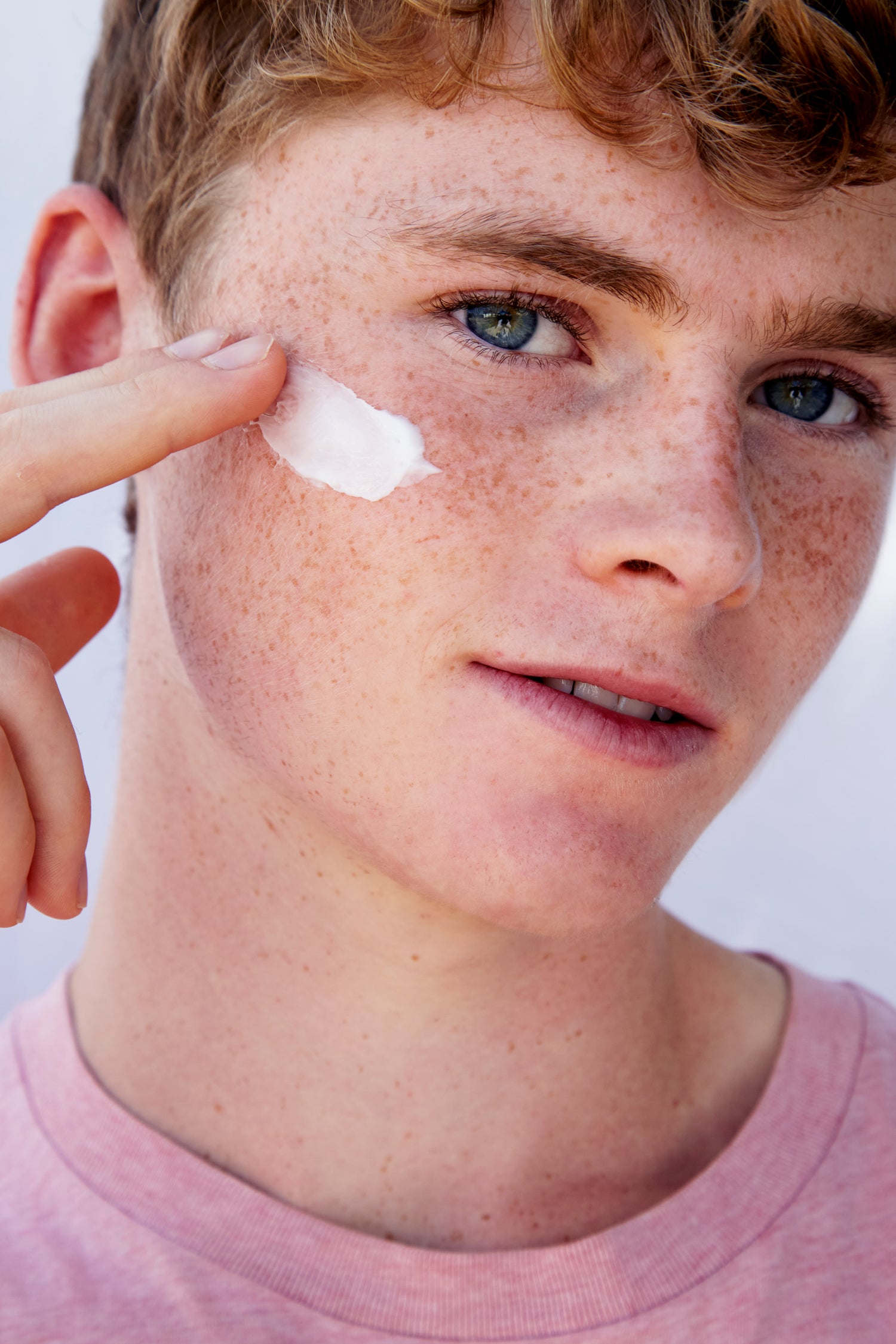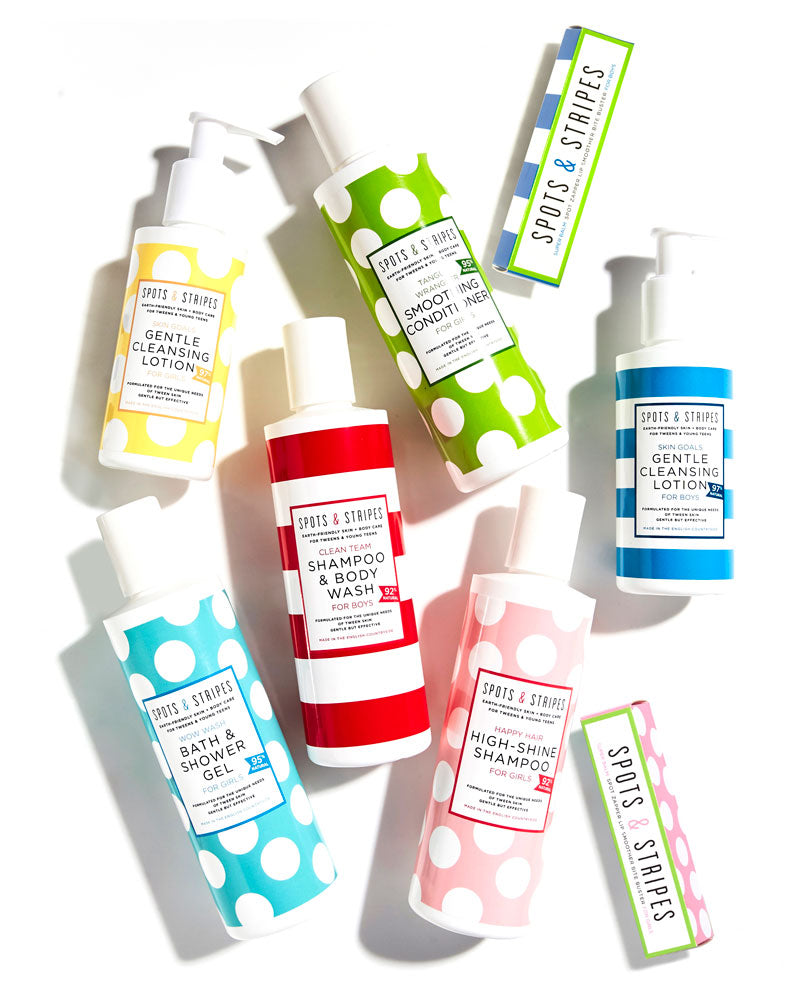Applying some sunscreen is better than applying none, but the reality is that most of us don’t apply nearly enough for it to be fully effective.
And the consequences can be serious. Because sun exposure, even in a northern country like the UK, can damage your skin. And it’s not just the obvious sunburns. Most of what we think of as signs of aging are actually signs of sun damage. And because sun damage is cumulative, the more exposure you get, particularly when you are younger, the greater your chances of skin cancer later in life.
Protecting your skin is so simple really. But it is so essential and its effect on the health of your skin and your body now and in the future, is huge.
So, how much sunscreen do we really need to put on? How high the SPF? And how often do we need to apply it? We’ve got the sunscreen low-down here:
How much Sunscreen do we need to use?
More than you think! Let’s get very specific: for your face, ¼ tsp is the optimum amount - which is two whole finger lengths of product. If that seems like a lot, think about how you are going to spread this all over your face, ears and neck. For bodies, dermatologists talk about a ‘shot glass’ full of product - or two tablespoons. Again, that seems like a LOT, but to get the full SPF coverage the sunscreen offers, that’s what you need!
How often do we need to apply it?
You need to apply it every couple of hours to keep that coverage up, particularly if you are outside or somewhere sunny. If you are swimming, sweating and doing sport, you’ll need to reapply more often than every two hours because water and sweat and drying your body with towels will wash/wipe off the sunscreen. Lots of sunscreens claim to be water resistant, but the best advice is to reapply every time you come out of the water. And keep an eye on how long you are in the water, particularly if you’re playing water sports. You might need to come out and put on more sunscreen quite regularly.
So you can burn even on cloudy days?
Yes, you can! Proper sunburn - particularly in the Summer months. That’s because harmful UV rays are around every day, year round - even when it’s cloudy. And yes, even if you are inside or driving (those sneaky UV rays can penetrate windows!). During the winter months in the UK, you might not get an actual sunburn, but the UV rays will be damaging your skin, increasing future wrinkles, hyperpigmentation and the chances of skin cancer.
Which SPF will give the most protection?
Sun Protection Factor (SPF) is a measure of how well a sunscreen protects your skin from UVB rays - the rays that cause sunburn. A sunscreen with an SPF of 30 stops 97% of UVB rays from reaching your skin (as long as you apply the correct amount). Surprisingly, a sunscreen with SPF50 stops 98% of UVB rays - only 1% more. SPF 30 is ideal for daily wear and, if it's a mineral sunscreen, will be less white and sticky than a mineral SPF 50. But if your skin is super-fair and you're going to be on a beach for 8 hours, opting for SPF 50 or wearing a hat with SPF 30 is the best option.
Our 99% natural, 100% mineral Sun Squad Sensitive Skin SPF30 for Face is the first sunscreen specially formulated for teens and tweens
How long before going outside do I need to apply sunscreen?
When you apply sunscreen will also vary depending on what kind of sunscreen you’re using. Mineral sunscreens provide a physical block, so they start working the minute you spread them onto your skin. Chemical sunscreens should be applied 15 minutes before you go out in the sun, as they need time to absorb into skin and form a protective barrier.
So what’s the difference between mineral and chemical sunscreens?
Mineral sunscreens, also known as ‘Physical’ sunscreens – usually contain zinc oxide or titanium dioxide and protect your skin by reflecting and scattering UV rays away from your body (interestingly, new research suggests they actually protect skin by absorbing 95% of UV rays…!).
Chemical sunscreens are absorbed into your skin and, once they’re there, act like sponges, soaking up UV rays and turning them into heat before they can damage your skin.
Does everyone need to wear sunscreen?
Yes, everyone! Even if you have dark skin. It’s particularly crucial that children have proper protection. Children’s skin is more sensitive to UV rays than adult skin and their lifestyles mean they spend more time outside (often wet and sweaty!).
Amazingly, 25-50% of the total UV exposure a person has in in their lives is during their first twenty years. And studies have shown that several bad sunburns during childhood and adolescence can increase the chances of malignant melanoma (the nastiest form of skin cancer) later in life.
So, our advice for very young children is to cover them up as much as possible with protective UV clothing and hats. And think about the formulation of your sunscreen. While sprays have a reputation for being super-easy and quick to apply, dermatologists love a lotion. Why? Because you’re more likely to use the correct amount of sunscreen with a lotion! Sprays might be fast, but it’s too easy to miss bits.
You can find out more about our best-selling, multi award-winning Sun Squad Sensitive Skin SPF 30 for Face here! It's the first sunscreen formulated specially for teen/tween skin.






